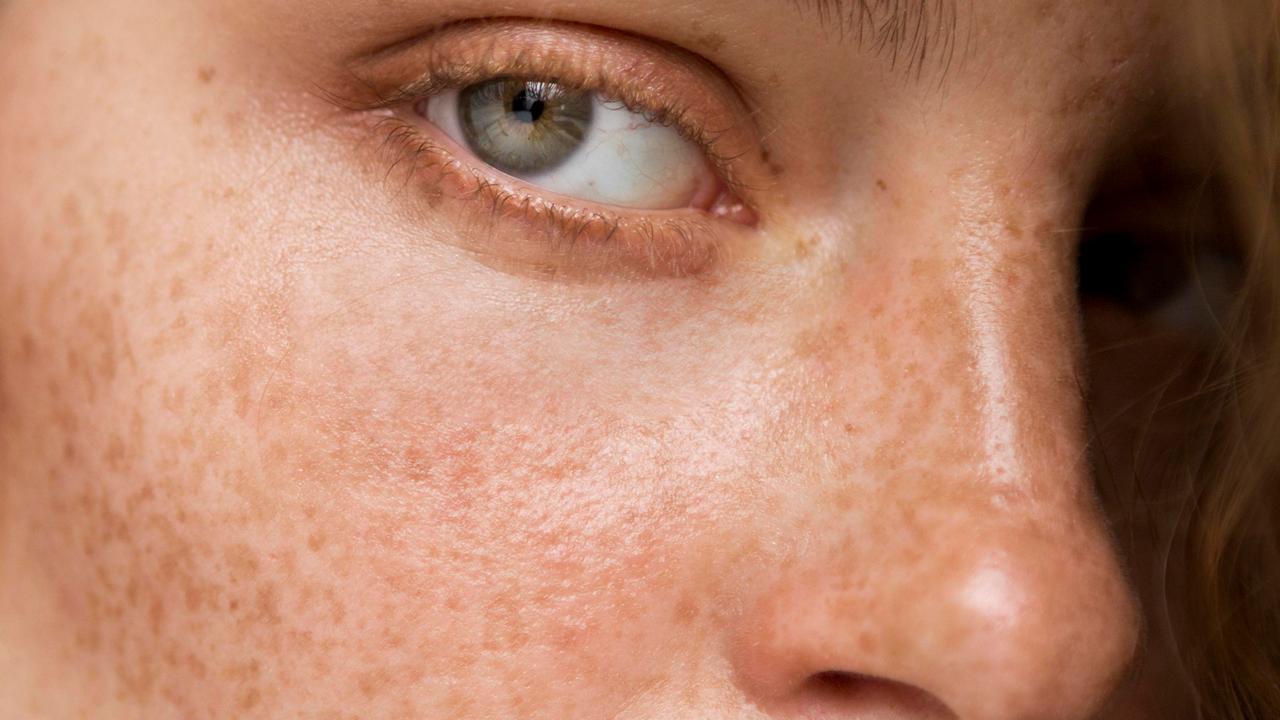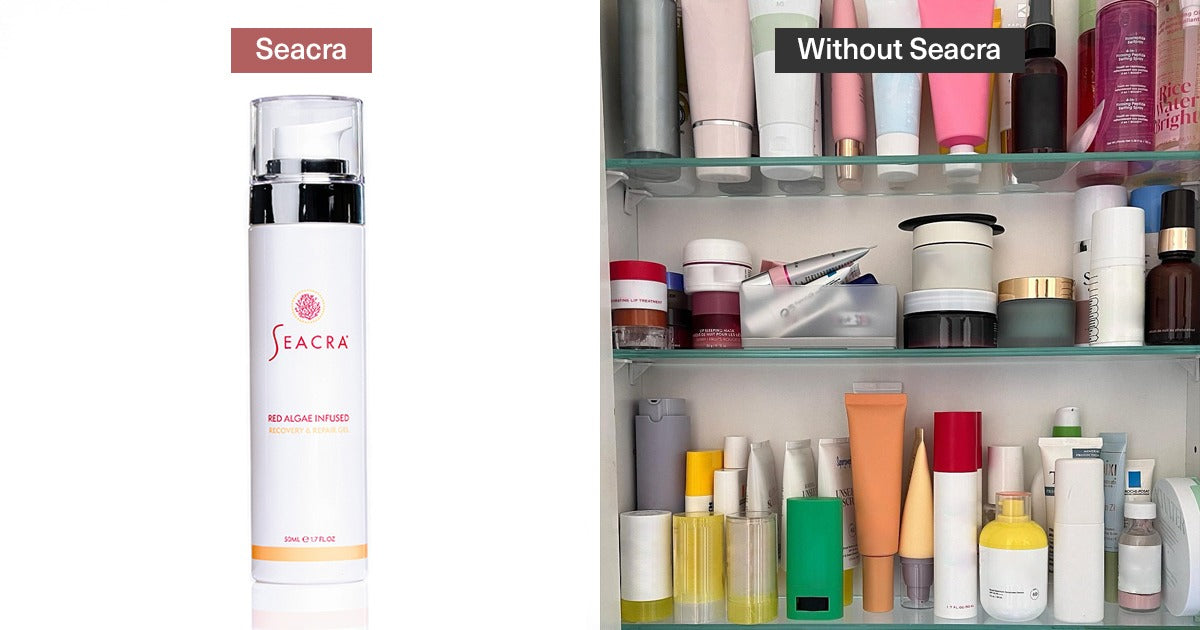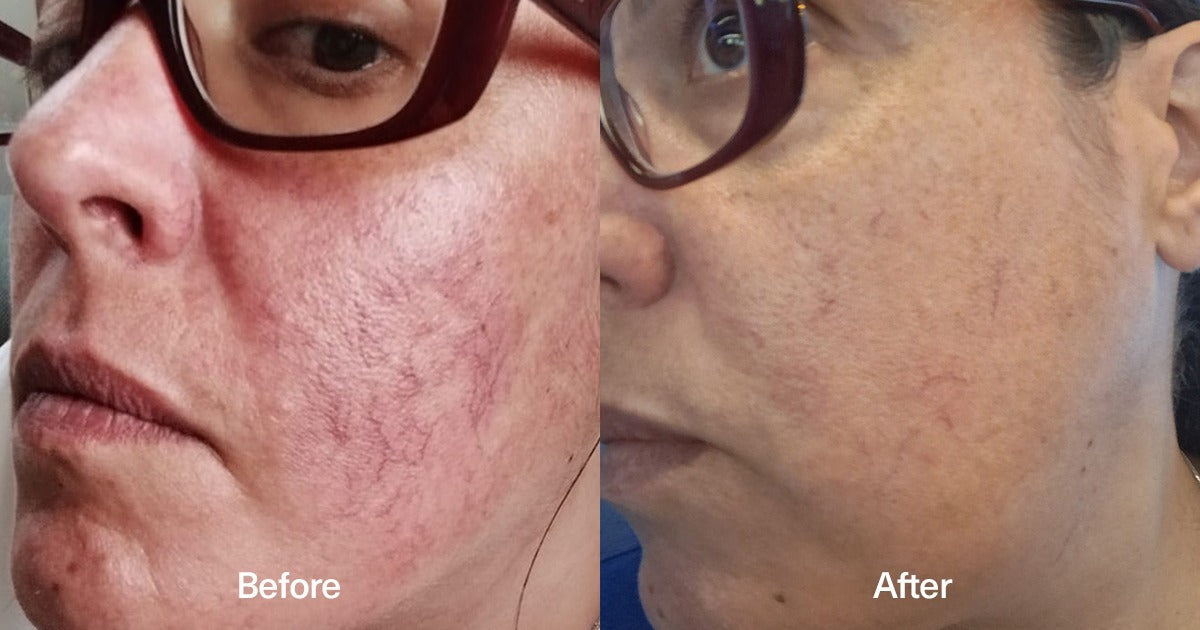It’s national Roscea awareness month! Did you know that 1 in 10 people in the UK suffer with roscea? The likelihood is that you may not even be aware that you have it.
Rosacea is a skin condition characterised by persistent redness around the cheeks, chin and nose. It affects approximately 18% of the population. Although there is no cure for rosacea, you can effectively manage the condition by making some lifestyle changes and treating flare-ups when they occur.
Because people are increasingly turning to more-natural methods for treating Rosacea, our scientists believe that the best approach for your skin—and preservation of natural resources—is through natural treatment, which uses natural ingredients to help reduce your symptoms and control your flare-ups.
Natural Rosacea Treatment
There are some lifestyle changes that you can make to see an improvement in your Rosacea symptoms. One way to do this is to manage your emotions and stress levels. A weakened body-mind connection can lead to physical illness if you're constantly stressed out. If you have a disease such as Rosacea and are always mentally exhausted, it may flare up because of these conditions.
The second thing you can do is create a good rosacea skincare regimen—one that avoids chemical or highly active ingredients. Using harsh soaps and highly scented lotions can worsen rosacea symptoms—which is why it's important to choose gentle skincare formulas that promote healing.
Symptoms of Rosacea
- Skin that is sensitive to heat or touch
- Redness, flaking and irritation around the central part of your face
- Red or blue veins on the face
- Red bumps and spots on your face
The causes of Rosacea
Although the main cause of Rosacea is unknown, scientists believe it is caused by a combination of genetic predisposition and environmental triggers.
Rosacea is often triggered by chemical irritation. Other common triggers are: excessive sun exposure, hot and spicy foods, stress and high-intensity workouts. It's important to try and control these triggers, so your rosacea symptoms don't get worse.
How do you choose the most appropriate skincare for rosacea?
More and more people with rosacea are choosing to treat their condition naturally rather than using prescription medication. You should focus on three components in your rosacea treatment.
Antioxidants.
Exposure to environmental stressors such as UV rays, smoke and chemicals can cause your skin's cells to produce excessive amounts of reactive oxygen species (ROS). This overproduction may trigger inflammatory skin diseases like Rosacea. Antioxidants can be your best weapon against ROS.
Red Algae contains one of the most powerful antioxidants—Astaxanthin. This substance is six thousand times more effective than Vitamin C at neutralising free radicals and 550 times better than Vitamin E in this respect.
Anti-inflammatories
Are a second important part of treating rosacea. People with Rosacea have higher levels of an inflammatory mediator called cathelicidins, which are part of the skin's defense system. Red Algae contains bioactive compounds that can inhibit the production of pro-inflammatory cytokines and reduce the expression of inflammatory genes. This makes it an effective acne rosacea treatment.
Skin Nutrients.
One of the most important things to include in your rosacea skincare routine is skin nutrients. Our bodies are like sponges: they absorb the things we put into them. If we consume unhealthy food and chemicals, our bodies will not be healthy—and diseases will manifest themselves.
However, if we keep our bodies healthy and well-nourished, they are better equipped to heal themselves from rosacea or any other skin condition.
Red Algae is basically a superfood for your skin – containing higher quantities of all those medically charged buzzwords such as Azelaic acid but with no side-effects. Forget treatments that cause redness and dryness, flare-ups or even raging sensitivity: think about something sustainable—both physically and mentally.
Our clinical study on patients with rosacea-prone skin.
We’ve worked with scientists and dermatologists to create a red algae gel that naturally treats redness and rosacea-prone skin and we clinically tested it with over 97% of women agreeing with our parameters.
After 28 days of using the product, 100% of volunteers with skin prone to Rosacea and redness reported a 21% reduction in redness. This makes Red Algae gel a safe acne rosacea treatment.
We believe that gentle, natural products can provide the support skin needs to heal itself. Red algae has been found to repair damaged skin, protect it against environmental stressors and maintain the barrier function of the skin. It is capable of living in the harsh conditions at the bottom of the ocean—otherwise, it wouldn't be able to survive.
The information in this blog is supported by scientific articles:
Recent advances in understanding and managing rosacea - PMC (nih.gov)
Potential Use of Seaweed Bioactive Compounds in Skincare—A Review - PMC (nih.gov)
Microalgae as Potential Anti-Inflammatory Natural Product Against Human Inflammatory Skin Diseases - PMC (nih.gov)
Algae Metabolites in Cosmeceutical: An Overview of Current Applications and Challenges - PMC (nih.gov)




